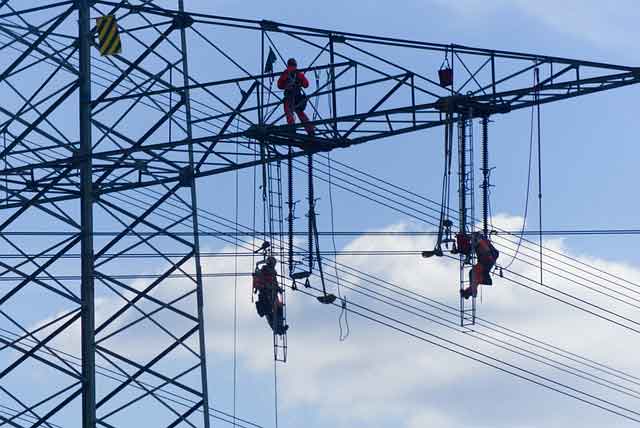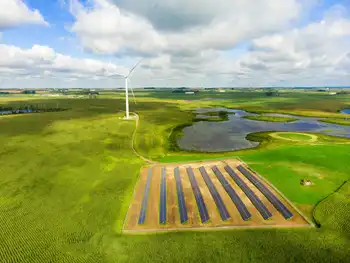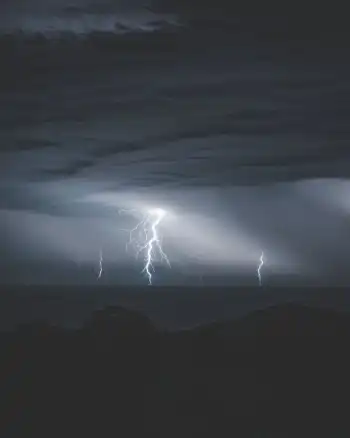Punjab power plant politically motivated
KARACHI, PAKISTAN - The Pakistan Muslim League-Nawaz (PML-N) government in Punjab has “political motives” behind initiating the perceived unfeasible 44 megawatt power plant on Chashma-Jhelum Link Canal, according to Sindh Minister for Irrigation and Power Murad Ali Shah.
“They (PML-N) want to damage the vote bank of PPP in two provinces by creating acrimony among the provinces,” the minister told Sindh Assembly. He said that the Sindh government has taken up the issue of power plant with Prime Minister Yousuf Raza Gilani who has been informed about the situation. He, however, added that the problem lies with Indus River System Authority (Irsa).
He alleged that Irsa was not distributing water among the provinces judiciously. “We cannot respect institutions if they snatch rights or democracy from the people,” declared Murad Shah. He opined that Chashma-Jhelum (CJ) canal power plant would also be damaging for Punjab as at present water flow to D.G. Canal and Muzaffar Garh Canal has been stopped to divert 5,000 cusecs water daily to the CJ canal. He said that the Balochistan government has sacked its representative in Irsa on February 12, who had voted in favour of opening the CJ canal by neglecting his province’s interests. He believed that legal complications will remain until the federal government issues a notification in this regard.
He alleged that the sacked representative of Balochistan in Irsa wanted to trigger confrontation among the provinces. But, he added, the Balochistan government immediately realized the gravity of the situation and rectified it. He said that Irsa had mala fide intentions behind its decision to transfer 5,000 cusecs water daily from Indus River to the CJ link canal. He announced that Sindh would fight a legal battle to reverse this decision.
In his lengthy statement before the house, the irrigation minister also traced history of water dispute between Sindh and Punjab starting from 1945. He said that from 1948 till 1960, “weak” federal governments tended to give money to India to get water from rivers. He claimed that India’s interests dominated in that treaty, adding that Sindh was not a part of that treaty and subsequently Punjab focused its attention towards River Indus.
Murad Ali Shah said that the work on the CJ canal was also started by the then dictator and it was completed in 1971. He recalled that later the democratic government had set up the “Akbar Commission” to get Sindh’s opinion. It was decided at that time that water would be transferred to the CJ canal only when there would be surplus water in Indus and shortage in Jhelum. He said that the then chief minister Sindh and governor Punjab also signed an agreement in 1972 under which “explicit permission” of Sindh chief minister was required each year to open the CJ canal. It was followed till 1985 when another military dictator stopped getting permission, he added.
The minister said that the Water Accord of 1991 also did not mention the CJ link canal, hence there was no water share for it in the accord. He said that the work on the CJ canal power plant was initiated by another military ruler in November 2007, adding, National Electric Power Regulatory Authority (Nepra) issued ads in newspapers on June 20, 2009, inviting objections. Murad Shah said that the Sindh government objected to it on June 27, followed by another letter written by the chief minister to the premier on July 7.
Nepra started hearings in August and September, he said and added that the Sindh government filed a review petition before Nepra on February 11, urging it to reconsider its decision to issue licence to a private power producer for setting up the plant. The minister claimed that no licence has so far been issued, adding, the Sindh government has also taken up this matter with the prime minister. Culture Minister Sassui Palijo and Humera Alwani also spoke and criticized the project and the PML-N.
Related News

TCS Partners with Schneider Electric Marathon de Paris to Boost AI and Technology
PARIS - Tata Consultancy Services (TCS) has officially become the AI & Technology Partner for the Schneider Electric Marathon de Paris, marking the start of a three-year collaboration with one of the world’s most prestigious running events. This partnership, announced on April 1, 2025, aims to revolutionize the marathon experience by integrating cutting-edge technology, artificial intelligence (AI), and data analytics, enhancing both the runner's journey and the spectator experience.
The Schneider Electric Marathon de Paris, which attracts over 55,000 runners from across the globe, is a renowned event that not only challenges athletes but also captivates a worldwide audience. As…




